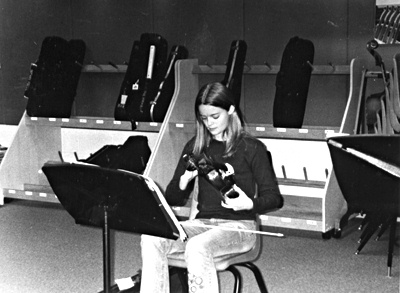All Nonfiction
- Bullying
- Books
- Academic
- Author Interviews
- Celebrity interviews
- College Articles
- College Essays
- Educator of the Year
- Heroes
- Interviews
- Memoir
- Personal Experience
- Sports
- Travel & Culture
All Opinions
- Bullying
- Current Events / Politics
- Discrimination
- Drugs / Alcohol / Smoking
- Entertainment / Celebrities
- Environment
- Love / Relationships
- Movies / Music / TV
- Pop Culture / Trends
- School / College
- Social Issues / Civics
- Spirituality / Religion
- Sports / Hobbies
All Hot Topics
- Bullying
- Community Service
- Environment
- Health
- Letters to the Editor
- Pride & Prejudice
- What Matters
- Back
Summer Guide
- Program Links
- Program Reviews
- Back
College Guide
- College Links
- College Reviews
- College Essays
- College Articles
- Back
Sight-Reading
Ding! The elevator doors slid open, revealing the lobby. Branching out of the opposite wall was the hallway that led to the rehearsal chamber. University students unpacked their instruments and chatted with each other. Among them was the violin professor of Murray State University, speaking with a collegiate violinist. My dad and I, clutching my violin case in my left hand, walked toward her, the sounds of musical instruments permeating the wall separating us and the rest of the orchestra, bellowing louder as we stepped toward her.
“Hello,” my dad said, “are you Dr. Park?”
“Why yes,” the professor replied back, grinning.
“My son’s violin teacher, Ms. Courtney, e-mailed you earlier about him joining the orchestra.”
“Yes, you must be Kester’s dad.”
She turned to me and said, “You should go unpack.”
There were cases of various sizes scattered throughout the hallway against the walls, so I placed mine near another violin case and unpacked. As I was tightening my bow, I thought, this will probably be a piece of cake, but a wave of nervousness washed over my body because I was the only seventh grader in a building of college students.
Dr. Park then escorted me inside the practice room and seated me next to an older lady who didn’t look like she attended college here. When I sat down, I gazed around the room, taking in my surroundings; the Youth Orchestra back home compared nothing to the MSU Orchestra. Collegiate students of all years were warming-up with instruments from every family: dozens of strings, woodwinds, brass, and percussion instruments. Trumpets blared, violins strummed, drums boomed, and flutes whistled simultaneously. A few minutes later, the conductor motioned at the concertmistress to stand up, signaling the start of tuning, and everyone quieted down immediately. I turned my head to check the clock behind me and then spotted my dad sitting down near it, watching me. He flashed a smile once I saw him. My confidence boosted, but it faded.
I turned around to find the conductor with his baton suspended in the air, and everyone started to play “Hungarian March” by Hector Berlioz.
I thought I could sight-read and keep up with the other violinists in my section, but clearly I was wrong. My fingers flew all over the neck of my violin, and my bow hopelessly tried to match those in front of me. I faked playing half the time because the pieces were too advanced for me to even play. I missed so many cues that I kept getting lost frequently. I even started to tap my foot to the beat, but Dr. Park stopped and whispered, “Don’t do that.”
I didn’t know what I was doing here, I thought to myself as I tried to play along. I didn’t feel as if I was good enough to impress Dr. Park! Although these violinists had many more years of experience, I didn’t have what it took to play with them. Why couldn’t I play this piece? This is too hard; I better just give up.
By the time the orchestra was at the second piece, Johannes Brahms’s “Symphony no. 1”, I wanted to run out of the room and into the bathroom, where I would cry until rehearsal was over. I kept on messing up, with each mistake disheartening me, but I thought to myself that I could do this, and I could survive until the rehearsal finished; I was not a quitter.
I kept on trying to play until the final note was completed for the night. I fought those thoughts that told me I wasn’t good enough. Once I finished, I walked out of the room and packed up, awaiting the moment of truth. I stepped back inside to find my dad talking with Dr. Park.
“He is a wonderful player,” she said. “Those who audition usually run out of the room, crying, but he held out. I observed him, and he’s really good. He still has a lot to work on, especially on his bowing, but I would love to give him lessons through my undergrad.”
They talked for quite a while. Once my dad and I walked to the car, he said, “She told me to wait in there to watch you if you run, but you didn’t.” We laughed.
I left campus knowing I made it to the orchestra because of my persistence, and I knew I was definitely going to come back next week!

Similar Articles
JOIN THE DISCUSSION
This article has 0 comments.
